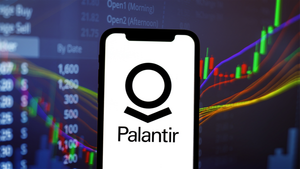
Singapore's Prime Minister Lawrence Wong has issued a powerful and urgent global appeal to governments worldwide: prioritize significant investment in preparing their workforces for the transformative era of artificial intelligence. This clarion call, delivered amidst escalating anxieties over AI-driven job displacement, underscores a deliberate, human-centric approach to technological advancement. It positions the state as a crucial architect in ensuring that the immense benefits of AI are equitably distributed, fostering economic growth while safeguarding societal stability and individual livelihoods. The immediate significance of this message lies in its proactive stance, advocating for a global strategy that marries aggressive AI adoption with robust policies for continuous education, reskilling, and job redesign, rather than leaving the future of work solely to market forces.
A Blueprint for Human-Centric AI Integration
Prime Minister Wong’s announcement is not merely a caution but a comprehensive blueprint for national and international action. At its core, Singapore's strategy emphasizes that AI's primary purpose should be to create and enhance local jobs, boost productivity, and benefit the workforce, rather than causing widespread displacement. This approach fundamentally differs from a laissez-faire outlook, which often assumes new jobs will automatically emerge to replace those lost. Wong explicitly stated that "there is no economic law that guarantees" such an outcome, stressing that governments "cannot leave this to the market." This marks a significant shift, acknowledging the unprecedented speed of AI-driven disruption and the need for deliberate intervention.
Technically, Singapore's multi-pronged strategy involves substantial overhauls and new initiatives. The SkillsFuture Programme is being revamped with the SkillsFuture Level-Up Programme, offering significant credit top-ups (e.g., SG$4,000 for Singaporeans aged 40 and above) for eligible training, including part-time and full-time diplomas and undergraduate courses. A Mid-Career Training Allowance provides up to SG$3,000 per month for workers over 40 to pursue approved full-time courses, with plans to extend this to part-time learners by early 2026. Furthermore, the National AI Strategy (NAIS) 2.0 aims to triple Singapore’s AI practitioners to 15,000 within three to five years through local training and international recruitment. The AI Apprenticeship Programme is being expanded, and universities are increasing AI course offerings, with some making AI a compulsory introductory subject for computer science students. These initiatives represent a concerted effort to proactively equip the workforce with the skills needed to thrive in an AI-driven economy, moving beyond reactive measures to systemic preparation. Initial reactions from policy experts and labor organizations have largely been positive, hailing Singapore's pragmatic and forward-thinking approach as a potential model for other nations grappling with similar challenges.
Reshaping the AI Industry Landscape
Singapore's proactive stance has significant implications for AI companies, tech giants, and startups globally. Companies specializing in AI education, reskilling platforms, and workforce development solutions stand to benefit immensely. Firms offering AI tools designed for productivity enhancement and job augmentation, particularly those tailored for Small and Medium-sized Enterprises (SMEs), will find a fertile ground for growth. The emphasis on broad-based AI adoption, rather than solely focusing on frontier advancements, encourages the development of practical, accessible AI solutions that can be integrated across various sectors, boosting overall economic productivity.
For major AI labs and tech companies, Singapore's call signals a growing global expectation for responsible and human-centric AI development. While these companies often lead in innovation, they may face increasing pressure from governments to demonstrate how their technologies contribute to job creation and workforce empowerment, rather than solely focusing on efficiency gains that could lead to displacement. This could disrupt existing product roadmaps, pushing companies to invest more in explainable AI, human-in-the-loop systems, and collaborative AI tools. Startups that align with Singapore's vision, focusing on solutions that empower workers and facilitate reskilling, could gain significant market positioning and strategic advantages, potentially attracting government partnerships and investment in a global landscape increasingly prioritizing inclusive AI growth. The competitive landscape may shift towards companies that can offer not just cutting-edge AI, but also comprehensive strategies for its ethical and societal integration.
A Global Imperative for Inclusive AI Growth
Singapore's advocacy for workforce preparation fits squarely into the broader global AI landscape, which is increasingly grappling with the societal impacts of rapid technological advancement. It highlights a critical trend: the shift from viewing AI purely as a technological marvel to recognizing it as a profound societal force requiring careful governance and strategic human capital development. The call echoes concerns raised by international bodies like the International Monetary Fund (IMF), which has pointed to Singapore's particular exposure to AI's workplace disruptions due to its skilled workforce. This initiative serves as a potential global benchmark, especially for other small, open economies, demonstrating how aggressive tech adoption can be balanced with human-centric policies to maintain societal stability in a turbulent world marked by economic fragmentation and geopolitical tensions.
The potential concerns addressed by this proactive approach include the exacerbation of income inequality, particularly affecting women and younger workers, if AI's benefits are not widely distributed. By emphasizing broad-based AI adoption and supporting SMEs, Singapore aims to ensure that the returns from AI investments accrue not just to the owners of capital, but also to workers and the broader populace. This contrasts sharply with earlier industrial revolutions, where the social safety nets and educational infrastructure often lagged behind technological change, leading to significant social unrest. Singapore's engagement in international forums like APEC, advocating for cooperation and best practices in AI, further underscores its commitment to shaping a responsible global AI future, exemplified by initiatives like the AI Verify Foundation and the Singapore Consensus on Global AI Safety Research Priorities.
The Road Ahead: Continuous Adaptation and Global Collaboration
Looking ahead, the initiatives outlined by Singapore's Prime Minister signal a future characterized by continuous adaptation and robust international collaboration in the realm of AI and workforce development. Near-term developments will likely see the full implementation and expansion of programs like the SkillsFuture Level-Up Programme and the Mid-Career Training Allowance, with the latter extending to part-time learners by early 2026. The push to triple Singapore's AI practitioners to 15,000 within three to five years will necessitate sustained investment in specialized training and talent attraction.
In the long term, experts predict that the concept of a static career will become increasingly obsolete, replaced by a dynamic model of lifelong learning and multiple career pivots. This will require not just government-led initiatives but also a fundamental shift in corporate culture towards continuous employee upskilling and reskilling. Potential applications and use cases on the horizon include highly personalized AI-powered learning platforms, advanced job-matching algorithms that identify skill gaps and suggest relevant training, and collaborative AI systems that augment human capabilities rather than replacing them entirely. Challenges that need to be addressed include ensuring equitable access to these training opportunities, particularly for vulnerable populations, and constantly updating curricula to keep pace with rapidly evolving AI technologies. Experts predict that successful nations will be those that can foster a strong ecosystem of government, industry, and academia working in concert to cultivate an adaptable and resilient workforce.
A Defining Moment for the Future of Work
Singapore's Prime Minister Lawrence Wong's call for global governments to invest in preparing their workforces for the age of artificial intelligence marks a defining moment in the ongoing discourse about the future of work. The key takeaway is clear: the transition to an AI-powered economy cannot be left to chance; it requires deliberate, proactive, and human-centric government intervention. Singapore's comprehensive strategy, encompassing significant investments in lifelong learning, job redesign, and talent development, offers a tangible model for other nations.
This development holds immense significance in AI history, shifting the narrative from technological determinism to one of human agency and responsible governance. It underscores that while AI's capabilities are profound, its ultimate impact on society will be shaped by the policy choices made today. The long-term impact could be a more equitable and resilient global workforce, capable of harnessing AI's potential for widespread prosperity. In the coming weeks and months, the world will be watching to see how other nations respond to this call, and how Singapore continues to refine and implement its ambitious strategy. The success of these initiatives will not only benefit Singaporeans but could also provide invaluable lessons for a world grappling with the profound implications of the AI revolution.
This content is intended for informational purposes only and represents analysis of current AI developments.
TokenRing AI delivers enterprise-grade solutions for multi-agent AI workflow orchestration, AI-powered development tools, and seamless remote collaboration platforms.
For more information, visit https://www.tokenring.ai/.




